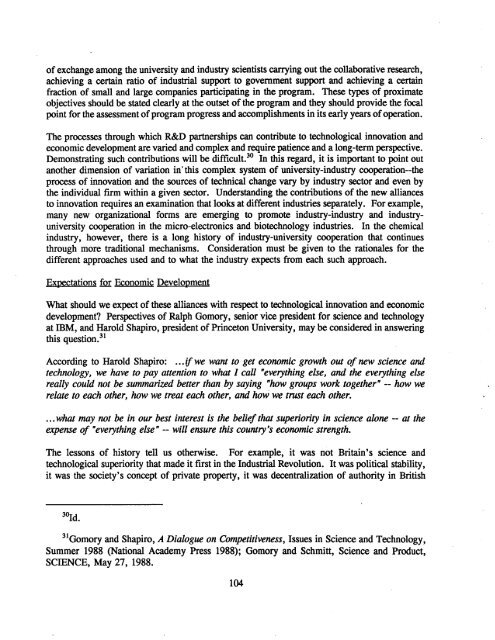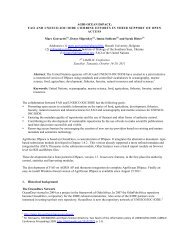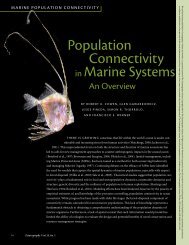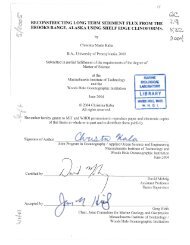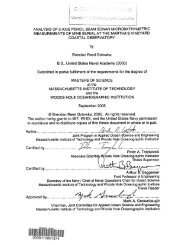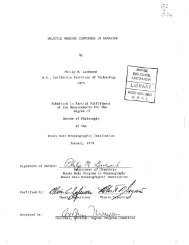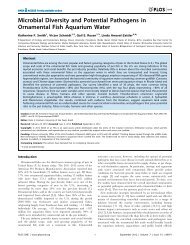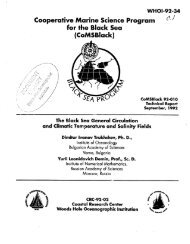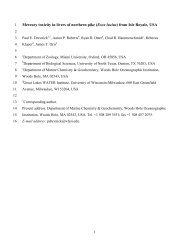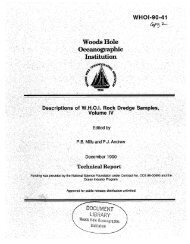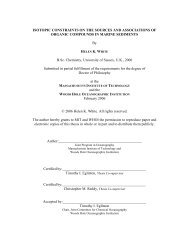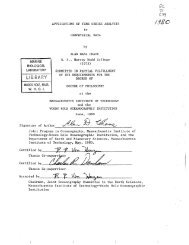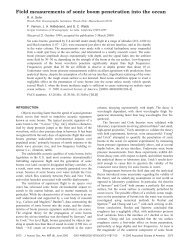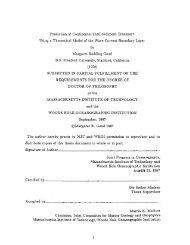WHOI-90-52
WHOI-90-52
WHOI-90-52
Create successful ePaper yourself
Turn your PDF publications into a flip-book with our unique Google optimized e-Paper software.
of exchange among the university and industr scientists caing out the collaborative resech,<br />
achieving a certn ratio of industral support to government support and achieving a certn<br />
fraction of small and large companies pacipating in the program. These tys of proximate<br />
objectives should be state clealy at the outset of the progra and they should provide the foc<br />
point for the assessment of program progress and accmplishments in its ealy yeas of operation.<br />
The procsses through which R&D parerships ca contrbute to tehnologica innovation and<br />
ecnomic development are vared and complex and require patience and a long-term perspetive.<br />
Demonstrating such contrbutions wil be difficult. 30 In this regard, it is importt to point out<br />
another dimension of varation in'this complex system of university-industr coperation--the<br />
procss of innovation and the sources of tehnica change var by industr setor and even by<br />
the individual firm within a given setor. Understading the contrbutions of the new alliances<br />
to innovation requires an examination that looks at different industres separately. For example,<br />
many new organizational forms are emerging to promote industr-industr and industruniversity<br />
coperation in the micro-electronics and biotehnology industres. In the chemica<br />
industry, however, there is a long history of industr-university coperation that continues<br />
through more traditional mechanisms. Consideration must be given to the rationales for the<br />
different approaches use and to what the industr expets from each such approach.<br />
Expetations fi Ecnomic Development<br />
What should we expet of these alliances with respet to tehnologica innovation and ecnomic<br />
development? Perspetives of Raph Gomory, senior vice president for science and tehnology<br />
at ffM, and Harold Shapiro, president of Princeton University, may be considered in answering<br />
this question.31<br />
According to Harold Shapiro: ... if we want to get economic growth out of new science and<br />
technology, we have to pay attention to wha I call "everything else, and the everything else<br />
really could not be summarized better than by saying "how groups work together" -- how we<br />
relate to each other, how we treat each other, and how we trut each other.<br />
. . . wha ma not be in our best interest is the belief tha superiority in science alone -- at the<br />
expense of "everything else" -- will ensure this country's economic strength.<br />
The lessons of history tell us otherwise. For example, it was not Britan's science and<br />
technologica superiority that made it first in the Industral Revolution. It was politica stabilty,<br />
it was the soiety's concept of private property, it was decntralization of authority in British<br />
30Id.<br />
31Gomory and Shapiro, A Dialogue on Competitiveness, Issues in Science and Technology,<br />
Summer 1988 (National Academy Press 1988); Gomory and Schmitt, Science and Product,<br />
SCIENCE, May 27, 1988.<br />
104


